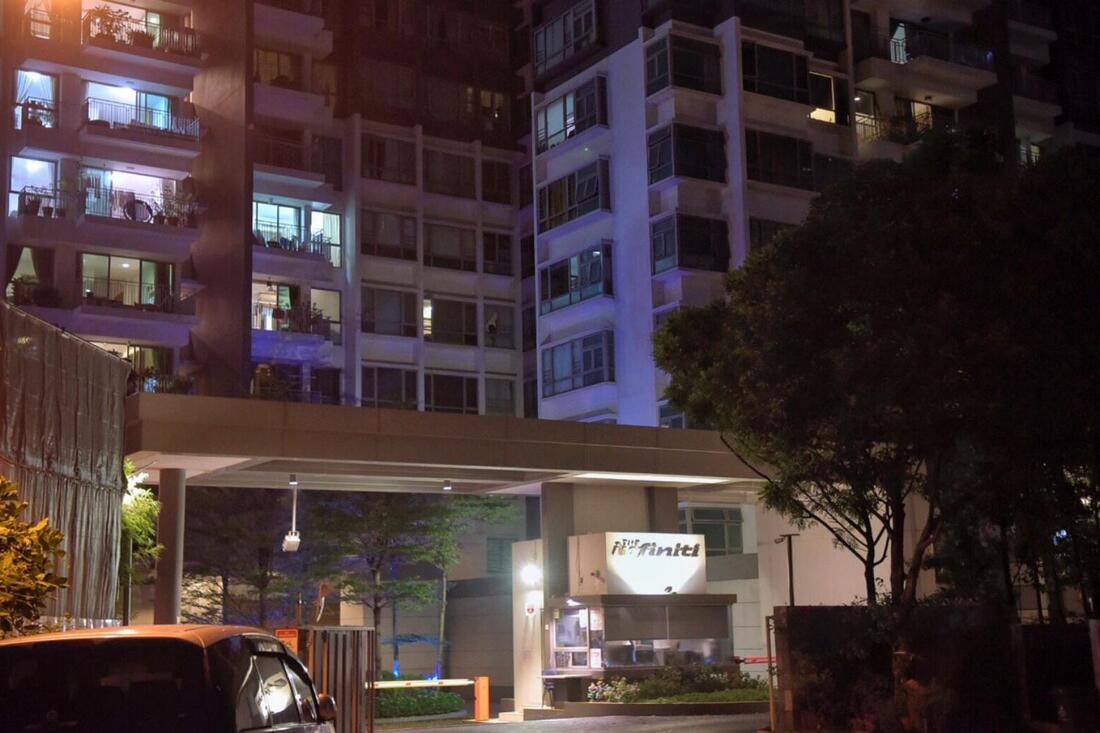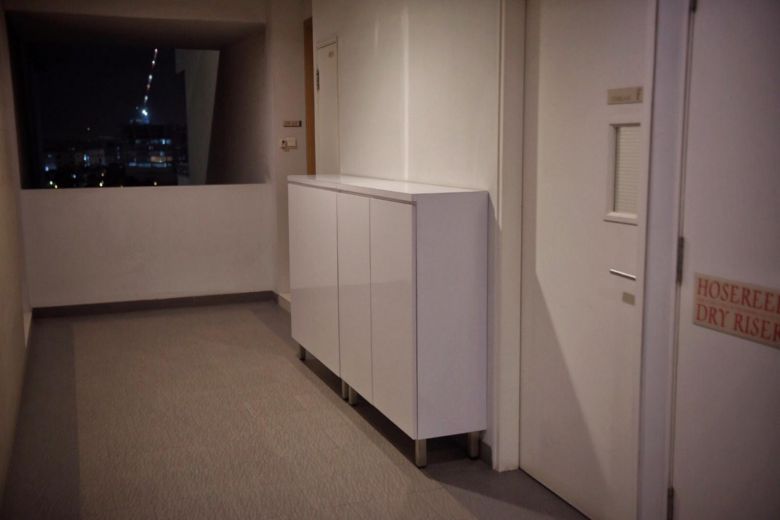A District Judge in Singapore ruled in favour of the home owner against the MC of a condo in West Coast making it a test case about placing personal items in a common corridor and the extent to which an MC can intervene.
The judge Lim Wen Juin said that placing the shoe cabinet in the common corridor broke the The Infiniti condo's by-law but he added that the MC is not getting the court order that will require the unit's owner to remove the cabinet. Such an order would be a "disproportionate" response to the by-law breach, because the cabinet does not obstruct movement in the corridor nor intrude on any person's rights but to the "most negligible degree", he said.
In decision grounds issued earlier this month, the judge also took issue with the MC's conduct, which he found "unreasonable and objectionable". The cabinet, placed beside the apartment's front door, is 1.06m long and 0.36m wide.
The judge Lim Wen Juin said that placing the shoe cabinet in the common corridor broke the The Infiniti condo's by-law but he added that the MC is not getting the court order that will require the unit's owner to remove the cabinet. Such an order would be a "disproportionate" response to the by-law breach, because the cabinet does not obstruct movement in the corridor nor intrude on any person's rights but to the "most negligible degree", he said.
In decision grounds issued earlier this month, the judge also took issue with the MC's conduct, which he found "unreasonable and objectionable". The cabinet, placed beside the apartment's front door, is 1.06m long and 0.36m wide.
One of the MC's claims is the cabinet reduced the width of the common corridor available for fire escape. Evidence failed to bear it out. The defendants' lawyer, Mr Raymond Lye, pointed to the Singapore Civil Defence Force's practice code for fire safety precautions. It prescribed a minimum width of 1.2m for corridors in high-rise buildings. As the 0.36m-wide cabinet reduced the corridor width to no less than 1.44m, it satisfied the code.
The case eventually turned on a broadly phrased additional by-law that prohibits storing, leaving or discarding personal belongings in common areas and staircases, regardless of the size, nature and whether the object obstructs people's path. It is so widely couched that it could be a breach to leave even small items such as a flower pot or a pair of shoes in a common corridor, the judge noted. He chided the MC for not being even-handed in enforcing its by-laws.
The case eventually turned on a broadly phrased additional by-law that prohibits storing, leaving or discarding personal belongings in common areas and staircases, regardless of the size, nature and whether the object obstructs people's path. It is so widely couched that it could be a breach to leave even small items such as a flower pot or a pair of shoes in a common corridor, the judge noted. He chided the MC for not being even-handed in enforcing its by-laws.
Photographs showed many other owners had left personal belongings in the common corridor outside their units, thus breaching the same by-law.
The MC said it targeted the shoe cabinet as it was the newest and largest of the offending cabinets and that it would go after the rest after it succeeded in this case. The judge also had doubts the MC intended to take any steps against the other owners. The MC is appealing against the decision, said its lawyer Leo Cheng Suan. Meanwhile, the shoe cabinet remains outside the unit.
The MC said it targeted the shoe cabinet as it was the newest and largest of the offending cabinets and that it would go after the rest after it succeeded in this case. The judge also had doubts the MC intended to take any steps against the other owners. The MC is appealing against the decision, said its lawyer Leo Cheng Suan. Meanwhile, the shoe cabinet remains outside the unit.
Straits Times Online 29 Oct 2019: "Court rejects condo MC's bid to clear shoe cabinet from corridor"




 RSS Feed
RSS Feed
